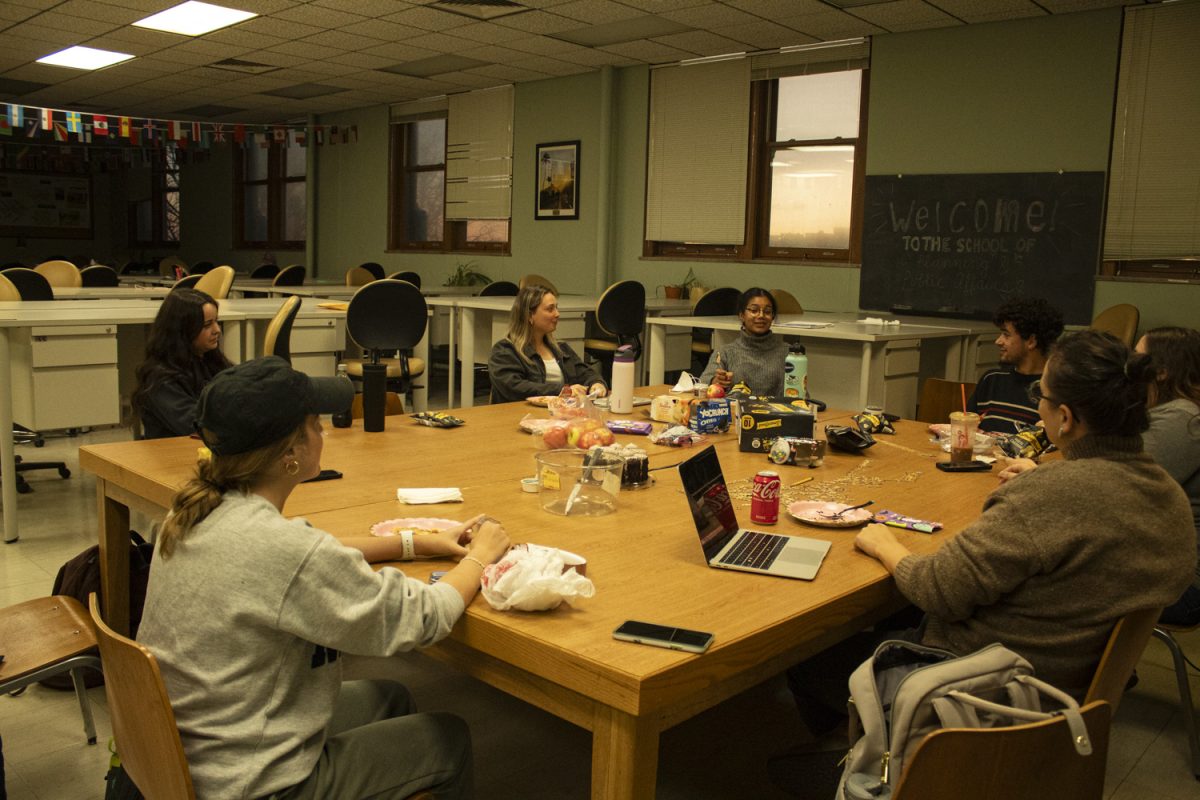By 1925, almost 85 percent of Native American children had been forcibly removed from their families and sent to government-run boarding schools designed to strip them of their Indigenous identities. And this era of forced assimilation was far from over.
On Oct. 25, President Joe Biden issued a formal apology to the Native American population for the 150-year era of federal boarding school policies, becoming the first president to do so.
“Children would arrive at schools. Their clothes taken off. Their hair that they were told was sacred was chopped off. Their names literally erased and replaced by a number or an English name,” Biden said, also noting that boarding school survivors recall facing brutal physical punishment for speaking in their native languages.
By 1969 — the end of what the Department of the Interior classifies as the boarding school era — over 18,000 Native American children had attended one of 408 schools operated or supported by the U.S. government, according to the 2024 Federal Indian Boarding School Initiative Investigative Report.
University of Iowa professor Carrie Schuettpelz, an enrolled member of the Lumbee Tribe, said this number is a fraction of the total.
“What I can say with complete confidence because I have the list is that over 200,000 children have Indian boarding school records located in the National Archives,” Schuettpelz said.
Many of the children taken to boarding schools never returned home. The 2024 report revealed nearly a thousand Native children died at these schools — their bodies recovered from both marked and unmarked graves.
Yet many survivors remain. For them, Schuettpelz has meticulously combed through the thousands of school records in the National Archives, working to return what may be the only tangible piece of a stolen childhood.
“In some of the records that I’ve started returning, I’ve found their letters to Santa,” Schuettpelz said.
Some letters, she explained, were illustrated by children too young to write. Others were clumsily scrawled by those just old enough to spell out their wishes. But each was penned by a Native American child longing for a holiday with family.
“[The letters] are really heartbreaking when you consider the fact that they weren’t allowed to go home for Christmas,” Schuettpelz said. “You’re talking about kids who are four or five, six years old.”
In his apology, Biden called the era of Indian boarding schools, “a significant mark of shame, a blot on American history.”
But to Schuettpelz, the devastation is not just history; it’s a lived reality for survivors — the youngest now 60 years old — who carry its weight every day, a weight that an apology alone cannot lighten.
“Words are important but not enough,” Schuettpelz said. “What we really need is action. We need policies in place to make sure this never happens again, but we also need support for the victims and their families.”
In response to Biden’s apology, the Great Plains Action Society — an Indigenous-led nonprofit based in Iowa City — outlined a series of demands, insisting that words alone will not heal the wounds left by these schools.
One key demand is that Biden establishes a federal Truth & Healing Commission to investigate the impact of Indian boarding schools and support survivors — an action Nicole Rains, land defense organizer for the Great Plains Action Society, described as readily achievable.
RELATED: UI student group hosts celebration for Indigenous People’s Day
“Other countries have that,” Rains said, noting Truth & Reconciliation Commissions in Canada and South Korea that investigated human rights abuses affecting children. “It’d be a very simple action he could do on his way out.”
Rains commended Biden as the first president to officially acknowledge the atrocities of Indian boarding schools in the U.S. but said the timing of his apology does not convey a sense of good faith.
“At the end of your presidential term, it just feels like a political stunt,” Rains said.
As a member of the Oglala Lakota Nation with Palestinian relatives, Rains finds Biden’s apology for past atrocities against Native Americans especially hollow as the U.S. continues to support similar actions towards Indigenous Palestinians.
The Oglala Sioux Tribe is among several tribes and Indigenous groups calling for a ceasefire in Gaza, noting parallels between the treatment of Palestinians by the Israeli Defense Force and that of Native Americans by settlers.
“[Biden’s] apology is meaningless because Indigenous children are being actively genocided,” Rains said.
In an Oct. 31 briefing, United Nations experts urged all states to recognize Israel’s actions in Gaza as genocide, which Israel has previously denied, calling its actions self-defense.
The connection to the plight of Indigenous Palestinians in Gaza was not lost during Biden’s apology, as two protestors interrupted his speech on the Gila River Reservation to demand an end to U.S. aid to Israel.
Biden encouraged the protestors to speak, quieting voices in the crowd booing the interruption — an action Joe Maxwell, president of UI’s Native American Student Association and member of the Wampanoag Tribe of Gay Head Aquinnah, called kind but ultimately insufficient.
“At this point, with over 40,000 dead, it’s no longer enough to just be able to listen,” Maxwell said.
Like Rains, Maxwell praised Biden’s acknowledgment of America’s dark legacy of Indian boarding schools while emphasizing the need for meaningful redress.
“I’m excited to see action steps that the U.S. government takes from this point forward to support the rights of Indigenous people around the world,” Maxwell said.



